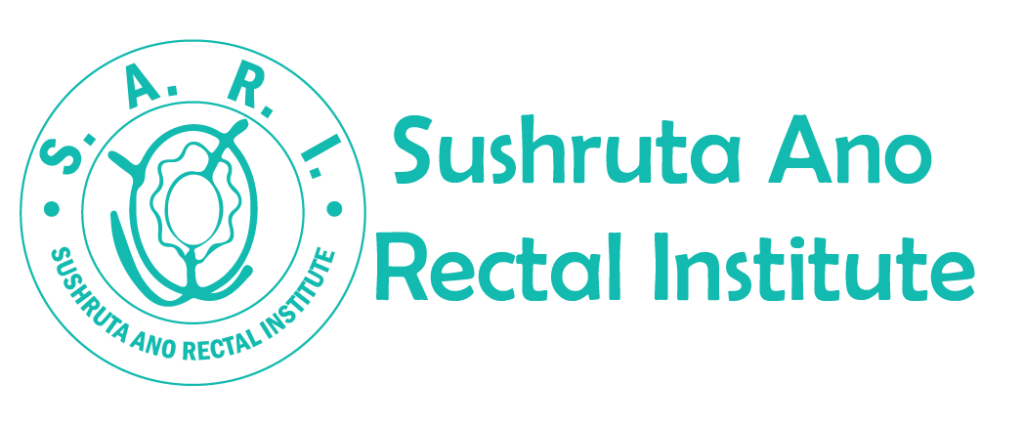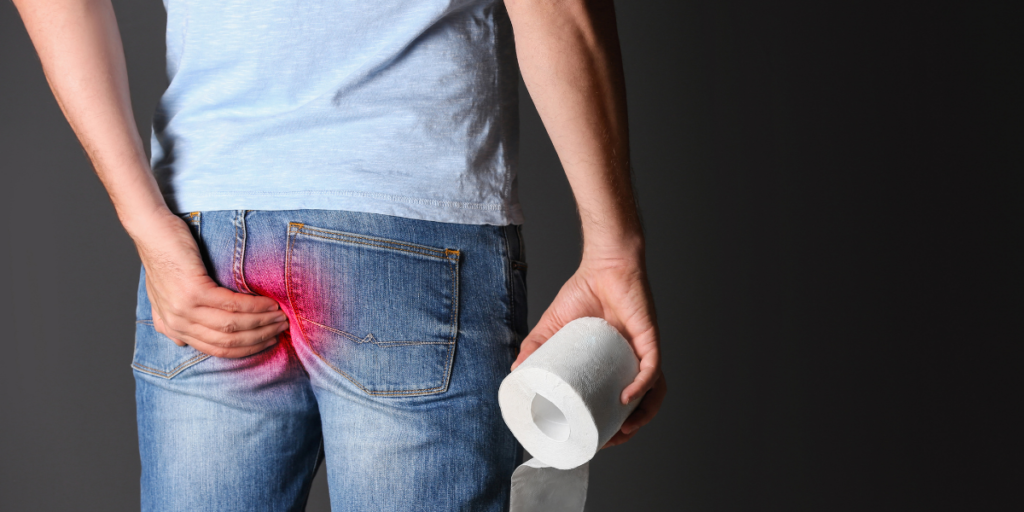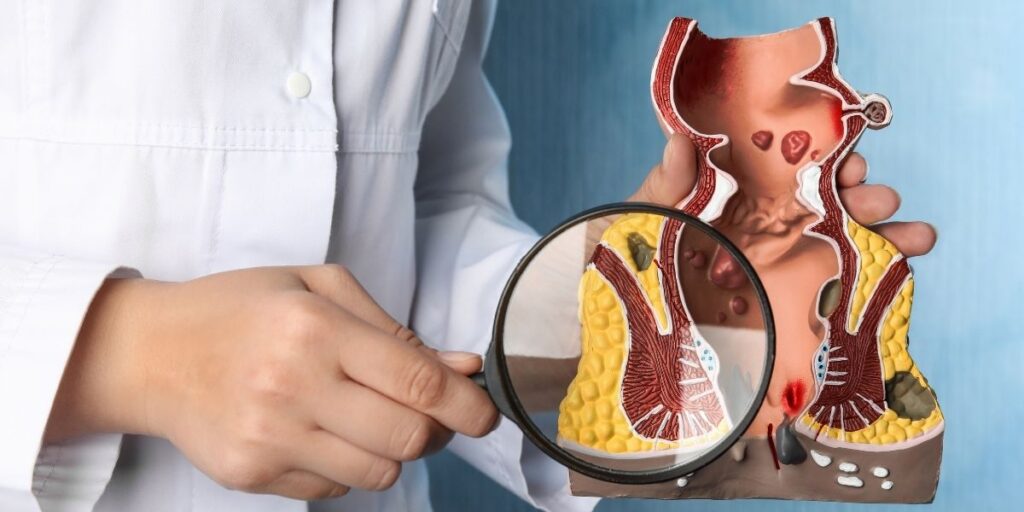Piles in Men and Women: Causes and Key Symptoms
- September 4, 2024
Introduction
Piles, commonly known as hemorrhoids, are swollen veins in the lower rectum or anus that can lead to discomfort, pain, and other troublesome symptoms. Understanding the causes and symptoms of piles is crucial for effective management and treatment. This blog will explore the causes of piles in men and women, highlighting the specific factors contributing to each, and detailing the piles symptoms for male and women piles symptoms. For comprehensive care, Dr. S.K. Singh at the Sushruta Piles Clinic offers expert guidance and advanced piles treatment in Delhi.
What Causes Piles in Women?
Understanding what causes piles in women can help in preventing and managing this condition effectively. Here are some common causes:
- Pregnancy: Increased abdominal pressure during pregnancy can lead to piles in women. The growing uterus exerts pressure on the pelvic veins, contributing to hemorrhoid formation.
- Hormonal Changes: Fluctuations in hormones during menstruation and menopause can affect the venous system, leading to piles in women.
- Childbirth: The process of childbirth, particularly if it involves prolonged labor or excessive straining, can cause piles in women.
- Constipation: Chronic constipation is a major factor, as it requires frequent straining during bowel movements.
- Obesity: Excess weight increases pressure on the veins in the lower rectum and anus, contributing to piles in women.
- Sedentary Lifestyle: Prolonged sitting and lack of physical activity can lead to poor circulation and increased pressure on rectal veins.
- Diet: Low-fiber diets can lead to constipation, which in turn increases the risk of developing piles in women.
- Aging: As women age, the tissues in the rectal area become weaker and more prone to swelling
- Genetics: A family history of hemorrhoids can increase the likelihood of developing piles in women.
- Heavy Lifting: Repeated heavy lifting can increase abdominal pressure, leading to piles in women.
What Causes Piles in Men?
The causes of piles in men are similar to those in women, but there are specific factors that may contribute:
- Heavy Lifting: Men who frequently lift heavy weights, either due to work or exercise, may develop piles in men due to increased abdominal pressure.
- Chronic Constipation: Persistent constipation can cause straining and increase the risk of piles in men.
- Sedentary Lifestyle: Jobs or habits that involve prolonged sitting can lead to hemorrhoids in men.
- Obesity: Excess body weight increases pressure on the rectal veins, contributing to piles in men.
- Diet: A diet low in fiber can lead to constipation and hemorrhoids.
- Straining During Bowel Movements: Frequent straining can cause piles in men.
- Pregnancy (Indirectly): Although less common, men can experience symptoms similar to those of pregnancy-related hemorrhoids due to similar physical stress factors.
- Aging: As men age, the risk of developing hemorrhoids increases.
- Chronic Diarrhea: Persistent diarrhea can irritate the rectal area and lead to hemorrhoids.
- Genetics: A genetic predisposition can also be a factor in developing piles in men.
Key Symptoms of Piles
Understanding the piles symptoms can help in early detection and treatment. Here are ten symptoms commonly associated with piles:
Men Piles Symptoms:
- Rectal Bleeding: Bright red blood on toilet paper or in the toilet bowl.
- Pain or Discomfort: Painful sensations during bowel movements or sitting.
- Itching or Irritation: Itching or irritation around the anus.
- Swelling: Noticeable lumps or swelling around the anus.
- Mucus Discharge: Presence of mucus discharge from the rectum.
- Prolapse: Internal hemorrhoids that protrude outside the anus.
- Constipation: Difficulty in passing stools.
- Anal Tenderness: Tenderness or soreness in the anal region.
- Fecal Leakage: Unintentional leakage of fecal matter.
- Inflammation: Inflammation around the anal area.
Women Piles Symptoms:
- Rectal Bleeding: Bright red blood during bowel movements or on toilet paper.
- Pain During Bowel Movements: Discomfort or pain while passing stools.
- Itching: Itching or burning sensation around the anus.
- Swelling: Swollen areas or lumps near the anus.
- Mucus Discharge: Mucus discharge from the rectal area.
- Prolapsed Hemorrhoids: Hemorrhoids that protrude from the anus.
- Anal Discomfort: General discomfort or pain around the anal area.
- Constipation: Difficulty and straining during bowel movements.
- Inflammation: Redness and inflammation around the anus.
- Anal Tenderness: Tenderness or pain in the anal region.
Seeking Professional Help
While home remedies and lifestyle changes can provide relief, piles treatment in Delhi may be necessary for more severe cases. For expert care, Dr. S.K. Singh at the Sushruta Piles Clinic is highly recommended. As a leading piles doctor in Delhi, Dr. Singh offers advanced treatment options tailored to individual needs, ensuring effective relief and management of hemorrhoids.
Conclusion
Understanding the causes and symptoms of piles in both men and women is crucial for effective management and treatment. Piles, or hemorrhoids, can arise from a variety of factors such as lifestyle choices, pregnancy, and other health conditions. For both men and women, recognizing the symptoms early—such as rectal bleeding, pain, itching, and swelling—can significantly improve outcomes and provide timely relief.
If you experience persistent symptoms or find that home remedies and lifestyle changes are not providing adequate relief, seeking professional help is essential. Dr. S.K. Singh at the Sushruta Piles Clinic in Delhi is a highly regarded specialist in the field of piles treatment. With his extensive experience and expertise, Dr. Singh offers comprehensive care tailored to each patient’s needs. Whether you’re dealing with severe pain, chronic symptoms, or looking for advanced treatment options, Dr. Singh provides effective solutions to manage and treat hemorrhoids.
Consulting with Dr. S.K. Singh ensures that you receive the best possible care for your condition. For personalized advice and advanced treatment, schedule a consultation at the Sushruta Piles Clinic to explore the most effective options available.
Read More: Graded Ksharsutra Unveiled: The Modern Solution for Hemorrhoids





